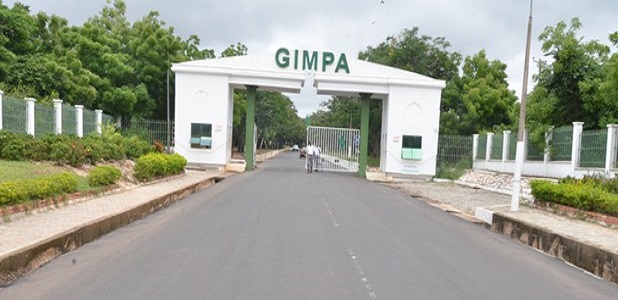
On Wednesday 6th May 2020, His Lordship Justice Dennis D. Adjei, Justice of the Court of Appeal of Ghana and Honorific Dean of the GIMPA Faculty of Law, delivered via Zoom, the first edition of the GIMPA Law and Ethics Web Series on the theme: ‘COVID-19, Legal Practice and its Implications for Judicial Decision Making’. The series is being organized by Dr. Kwaku Agyeman-Budu, Head of Law Centers at the GIMPA Faculty of Law and Ms. Christine Ofosu-Ampadu, Assistant Registrar at the Law Centers of the GIMPA Faculty of Law.
This session was moderated by Ms. Diana Asonaba Dapaah, Lecturer at the GIMPA Faculty of Law. The focus of the discussion was on the Coronavirus Pandemic that has thrust change upon all sectors of the economy, including the legal sector; with a resort to technology being the enabler of this change. The main contention for legal practice and judicial decision making, according to the learned Court of Appeal Justice, is about how the courts can keep to its core mandate in the delivery of justice, whilst protecting the various stakeholders of the justice system.
The recommendation in this policy paper, based on the presentation of His Lordship Justice Dennis Adjei is that there needs to be a gradual and systematic shift to online adjudication of some cases using electronic platforms and internet-based applications (either foreign or locally developed, with appropriate security features). This will however require the amendment of legislation, subsequent enactment of legislation, and judicial creativity.
Online adjudication of cases will achieve the objective of physical distancing to prevent the spread of COVID-19. More importantly, it will allow the courts to continue its work of upholding law and order, even in this coronavirus climate.
This recommendation is nonetheless beset with several challenges including: transitioning from the traditional methods we are accustomed to, to the new methods; the availability of resources (i.e. computers, secure, stable and fast internet connectivity) to effect this change; bridging the gap between the literate and illiterate population in the country; and maintaining the integrity of the profession in the bid to adapt to the times.
Click on the link to read the full document

